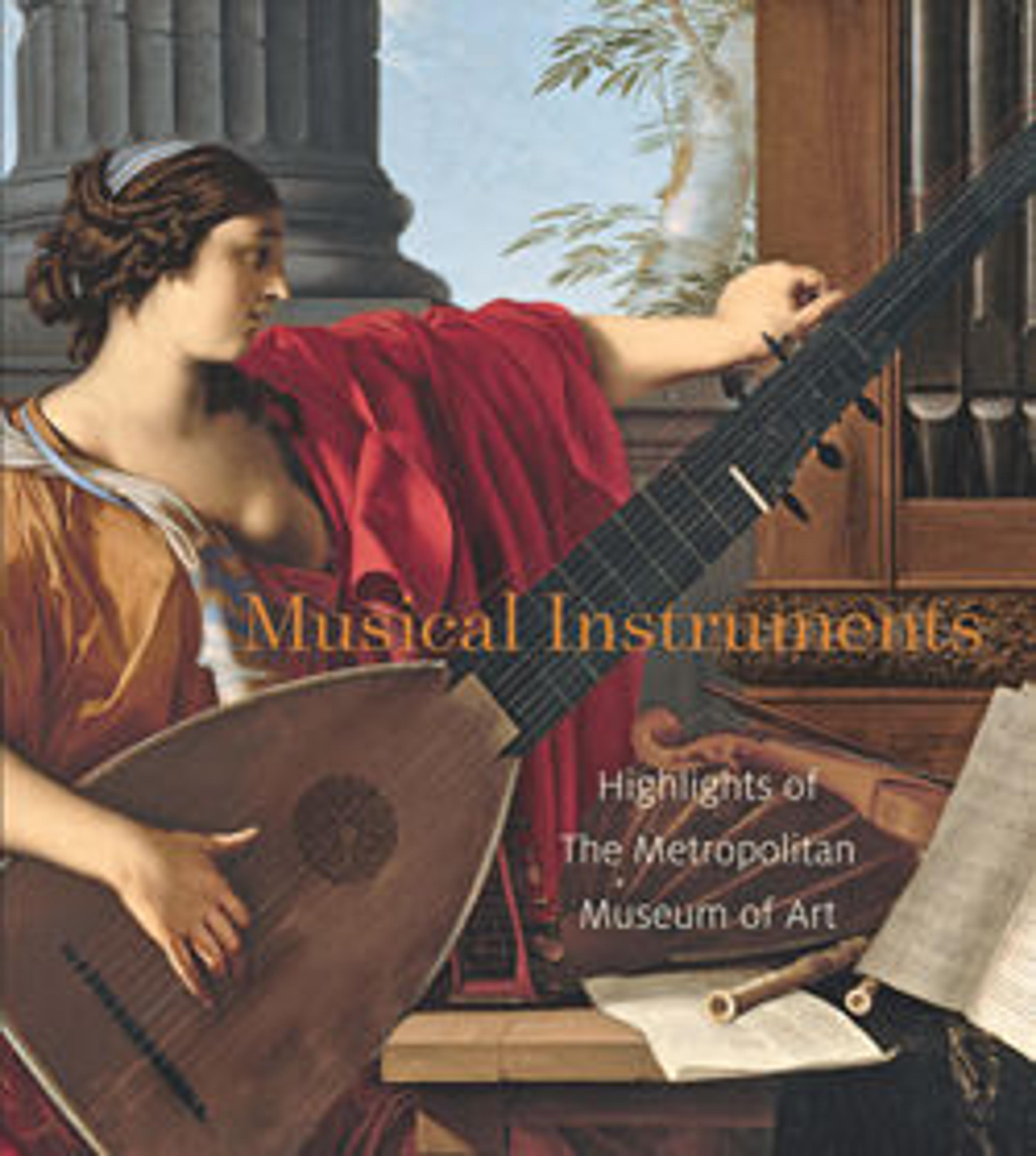Tsii' Edo' Ai (Apache fiddle)
The Apache name for this two-stringed bowed zither means "wood that sings." Held against the chest or stomach and bowed like European fiddles, it is used for personal enjoyment or to entertain at home with songs and dances. The hollowed agave stalk body is decorated with traditional designs, and the strings attached to the ends of the tube are of horsehair. As it is the only Native-American bowed instrument, it remains unclear as to whether it is indigenous or of European derivation.
Artwork Details
- Title: Tsii' Edo' Ai (Apache fiddle)
- Maker: Athabascan Family
- Date: ca. 1900
- Geography: Arizona, United States
- Culture: Native American (Apache)
- Medium: Agave flower stalk, wood, paint, horsehair
- Dimensions: a) Body: L. 45.6 x Diam. 5.7 - 9.1 cm (17 15//16 x 2 1/4 - 3 9/16 in.); Peg L. 5.7 cm (2 1/4)
b) Bow: L. 53.5 x W. 7.9 cm ( 21 1/16 x 3 1/8 in.) - Classification: Chordophone-Zither-bowed
- Credit Line: The Crosby Brown Collection of Musical Instruments, 1889
- Object Number: 89.4.2631a, b
- Curatorial Department: Musical Instruments
More Artwork
Research Resources
The Met provides unparalleled resources for research and welcomes an international community of students and scholars. The Met's Open Access API is where creators and researchers can connect to the The Met collection. Open Access data and public domain images are available for unrestricted commercial and noncommercial use without permission or fee.
To request images under copyright and other restrictions, please use this Image Request form.
Feedback
We continue to research and examine historical and cultural context for objects in The Met collection. If you have comments or questions about this object record, please contact us using the form below. The Museum looks forward to receiving your comments.
